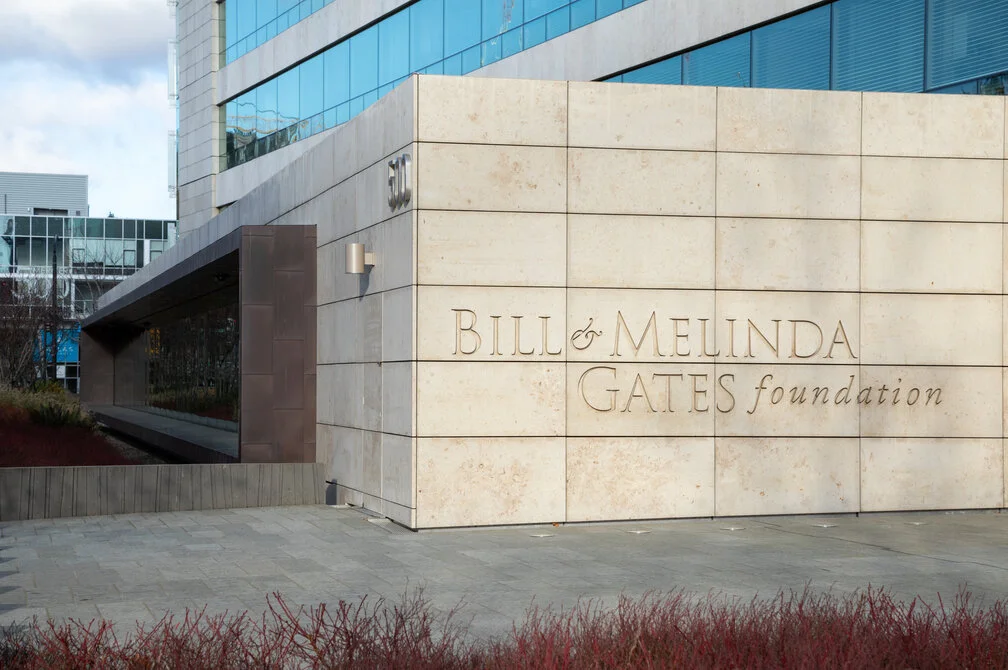As Gates Foundation Keeps Up COVID-19 Fight, Here are 3 Things to Know
/VDB Photos/Shutterstock
Back in early February, when most people in the U.S. and Europe believed—or hoped—that the novel coronavirus would fade from the front page without causing much trouble, the Bill & Melinda Gates Foundation committed $100 million in response to the new disease. That was on top of the $10 million it had already committed as early as January. These grants were consistent with the foundation’s longtime awareness and leadership in infectious disease and global health, notably with respect to malaria. But as the coronavirus threat quickly grew into an international disaster, the Gates Foundation has continued to drive forward with additional and substantial COVID-19 funding. Here are a few of the interests the foundation’s grantmaking brings into focus and possible directions for expanded funding in the future.
1. Vaccines and therapeutics are a top concern.
Faced with a highly contagious and dangerous new virus, health experts say therapeutics are desperately needed to treat the sickest patients, while vaccines are needed to protect everyone’s health and to get the planet back to work. The $100 million commitment that the Gates Foundation announced in early February was earmarked for coronavirus detection, isolation and treatment efforts, among other measures. Development of vaccines and therapeutics were already top of mind, and in March, the Gates Foundation followed up with a partnership with Wellcome Trust and Mastercard to launch the COVID-19 Therapeutics Accelerator. The initiative is speeding the development of new drugs, as well as evaluating existing drugs that might be effective against COVID-19. As Gates Foundation CEO Mark Suzman observed, viruses spread quickly, but drug development moves slowly. In April, Bill Gates said the foundation would fund the construction of factories to test seven vaccine candidates, and should any be found effective, get them into mass production as soon as possible.
2. Equity is baked into its strategy.
While COVID-19 has affected every country in the world, some populations and nations are at greater risk than others. “It is increasingly clear that the world’s response to this pandemic will not be effective unless it is also equitable,” said Melinda Gates, Gates Foundation co-chair, in April, when the organization announced an additional $150 million in funding, calling for international collaboration to ensure equitable access to diagnostics, treatments and vaccines. That money followed the $100 million Gates had already committed to support the global response. The foundation also announced it would leverage a portion of its $2.5 billion Strategic Investment Fund to address market failures and incentivize private enterprise to develop affordable and accessible health products. In any case, infectious diseases like COVID-19 have a rude disregard for national borders, so it can’t be eradicated anywhere unless it’s controlled everywhere. “Even if most countries succeed in slowing the disease over the next few months, the virus could return if the pandemic remains severe enough elsewhere,” said Bill Gates, foundation co-chair.
More recently, at the Coronavirus Global Response Summit in early May, the Gates Foundation announced the commitment of another $125 million "toward the international collective effort to develop and equitably distribute” COVID-19 diagnostics and treatments. That included $50 million in new funding for vaccine development. Other funding from the Gates Foundation was earmarked to strengthen African and South Asian health systems.
3. Expect more support to improve caregiving options.
Although there haven’t been recent major dollar announcements in connection with the concept, in a recent op-ed published in the Washington Post, Melinda Gates identified one of the practical matters that must be addressed as the country seeks to reopen—family caregiving, particularly the disproportionate burden that falls to women.
“Even before the pandemic,” Gates wrote, “caregiving options were inadequate and expensive. Now, everything that already made life hard for working families is about to get worse.” Schools are closed in most of the country, she noted, thousands of day-care centers may never reopen, and otherwise self-sufficient seniors are suddenly more reliant on their families. All this means that post-pandemic, Gates said, women could fall further behind in the long fight for workforce equality. It wouldn't be surprising to see the Gates Foundation address these matters more fully in the coming months and years.









